Defining linking between sites for non-transactional replication
Use the Sites or Sites/Entities form to define sites in your system.
-
On the
Sites or
Sites/Entities form, in all records for sites
that will be participating in non-transactional replication, specify a
System Type
in the
System Info tab.
The list of types that is displayed here was created in the System Types form. The system type you choose should exist at all of your sites.
If this is a new site record being added for non-transactional replication, specify additional information about the site, as applicable, on this tab.
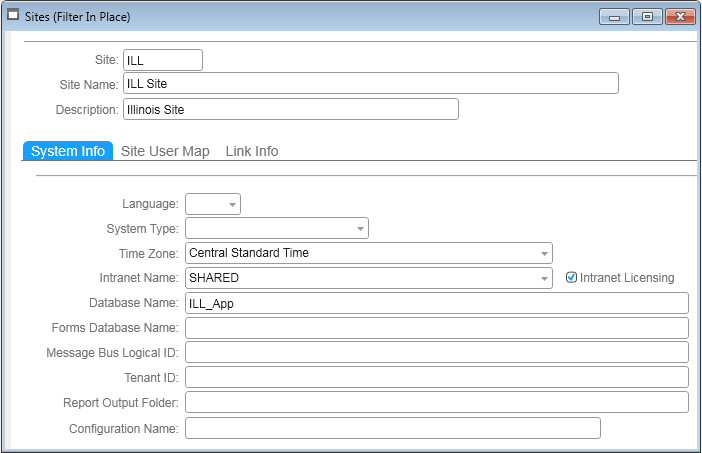
-
In the
Configuration Name field,
specify the name of a configuration that the system will use as the target
configuration when building IDORequest XMLs during replication and AES event
handling. If you leave this field blank, the system expects that a
configuration exists with exactly the same name as the site name, and it uses
that as the target configuration.
Note: The Reports To (entity) field on this form is display-only. Reporting hierarchies are set up later through the Change Reports to Entity utility.
-
On the
Site User Map tab, specify
the
SyteLine user
name under which the local site, that is, the site where you are currently
logged in, communicates with the target site, that is, the site whose record is
currently displayed.
From Site is the local site. User Name is the local user that the local site specifies when using the IDO connection to perform the requested transaction on the target site. The user name and the password for that user must be the same on both the local and target sites.
For now, specify the user name repl_user for all sites. See Setting up a replication user.
- For site/entity records where the
current site/entity will perform non-transactional replication with the
local site, the Site User
Map tab looks like this:
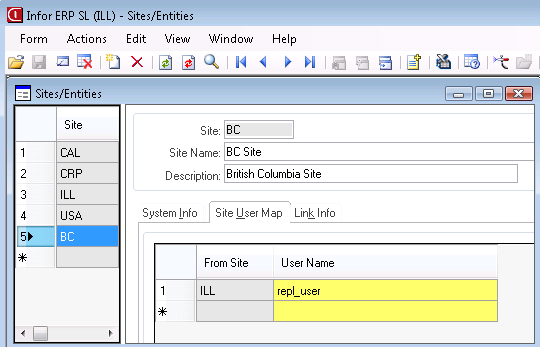
BC (the current record) is the "To" site and ILL (the local site) is the "From" site.
- For site/entity records where the
current site/entity will perform transactional replication with the
local site, the Site User
Map tab looks like this: The tab is blank because no
Site User information is required from ILL to CAL.
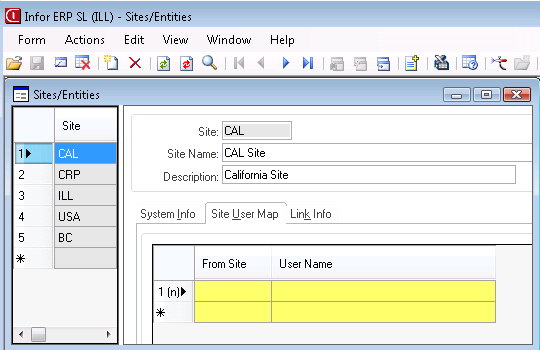
- If you are upgrading from a previous
version and choose to continue to use the “bootstrap” site method,
instead of the preferred “list of configurations” method:
- For the local site’s site/entity
record when the local site is also used as the replication
"bootstrap" configuration for the utility server, the Site User Map
tab looks like this: The Site User Map lists all the
other sites on the utility server where replication will be
"bootstrapped" from ILL (the local site).
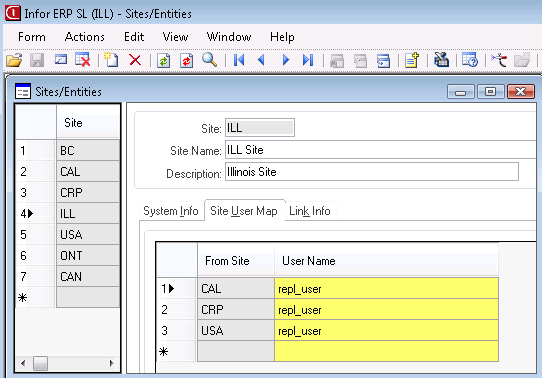
For the local site’s site/entity record when the local site is not used as the "bootstrap" configuration, the Site User Map tab looks like this: No sites are listed in the Site User Map tab (because the CAL site does not replicate data to itself).
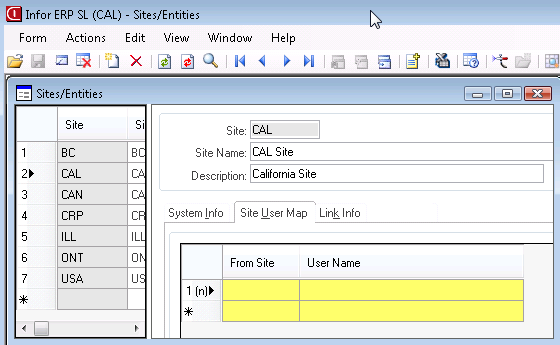
- For the local site’s site/entity
record when the local site is also used as the replication
"bootstrap" configuration for the utility server, the Site User Map
tab looks like this: The Site User Map lists all the
other sites on the utility server where replication will be
"bootstrapped" from ILL (the local site).
- For site/entity records where the
current site/entity will perform non-transactional replication with the
local site, the Site User
Map tab looks like this: